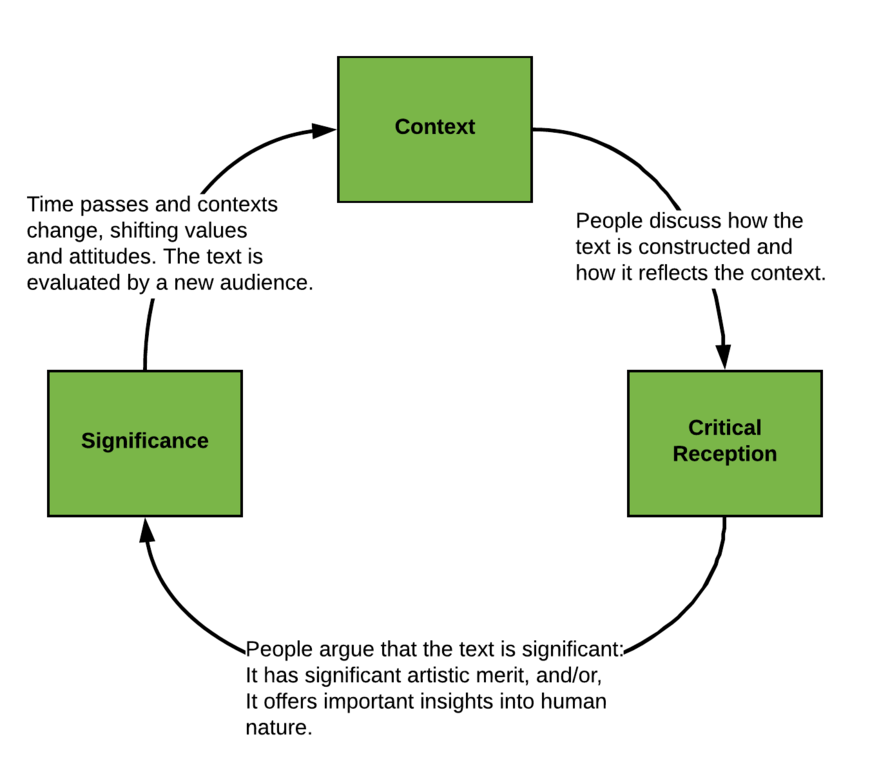

However, while Emma simply failed to match make, Cher finds her own position and power being challenged when Tai becomes “the most popular girl in the school”, which Cher hyperbolically describes as “an alternate universe”. This mirrors the personality of Emma, who also ignorantly takes matters into her own hands. To Cher’s own amusement she concludes that “(Tai’s) life will be better because of me”, leading to the “makeover”. Her preference of cartoon over news suggests her naivety whilst shallow indulging within her narrow world of superior wealth and popularity. Cher’s initial voiceover that she has a “way normal life”, ironically contrasts the images of her picking out clothes on the computer. Heckerling’s Clueless explores similar ideas of growth while reflecting the different context of modern America, where self realisations are consequences of personal dissatisfaction within the superficial society. This marks a major turning point in Emma’s moral growth, which is later rewarded through marriage. Order custom essay Emma and Clueless- Text and Contextįinally, “she acknowledged the whole truth” which metaphorically “darted through her, with the speed of an arrow” that she was in love, consequently leading to her realisation that she had been “inconsiderate”, “indelicate”, and “irrational” towards others, and how with “insufferable vanity she had believed herself in the secret of every body’s feelings”. He scolds Emma that “it was badly done! ” acting as compass to the realisation of her wrongs and “cruel” behaviour which “exposed herself to ill opinion”, indicating the strict social etiquettes of her time.

In contrast, Mr Knightley treats others with respect despite their social standing, acting as a moral voice in the novel when he says that Miss Bates deserves “compassion”, not “ridicule” when Emma insulted her as being “dull” at the Box Hill picnic. Her flawed and spoiled character is overshadowed by her “mutual attachment” to her “mild” tempered governess further exemplified through the authorial intrusion that she “had rather too much her own way”. Emma lacks life’s experiences, with “little to vex her” whilst doing “just what she liked”. The importance of personal growth is an element of humanity which transcends time, and can resonate through any context. While both texts are able to mirror the values and beliefs of its time, they convey similar ideas which are universal and relate to any context. However, Heckerling has taken similar ideas that speak powerfully about human nature to the different context of 20th century America, within the world of Clueless where a much fluid social structure is orientated around popularity and superficial materialism. Emma, written by Jane Austen reaffirms and challenges the conservative society of 19th century England, where moral growth is a result of strict social etiquettes and rigid class structure. This report examines what ‘a gender perspective’ in peace agreements might mean, assesses numerous peace agreements from between 1 January 1990 and 1 January 2015 for their ‘gender perspective, and produces data on when women have been specifically mentioned in those peace agreements.Ideas about the human condition can transcend time and expressed through different contexts while reflecting society’s changing values. These include difficulties with accessing talks, achieving equal influence at talks, raising issues of concern for women, and achieving material gains for women as an outcome of the peace process. However, a range of obstacles for women seeking to influence their design and implementation persists. Peace agreements are therefore important documents with significant capacity to affect women’s lives. Between 19 1,168 peace agreements have been negotiated in around 102 conflicts, on a wide definition of peace agreements to include agreements at all stages of the negotiations. Since approximately 1990, peace processes involving the negotiation of formal peace agreements between the protagonists to conflict have become a predominant way of ending violent conflicts, both within and between States.


 0 kommentar(er)
0 kommentar(er)
